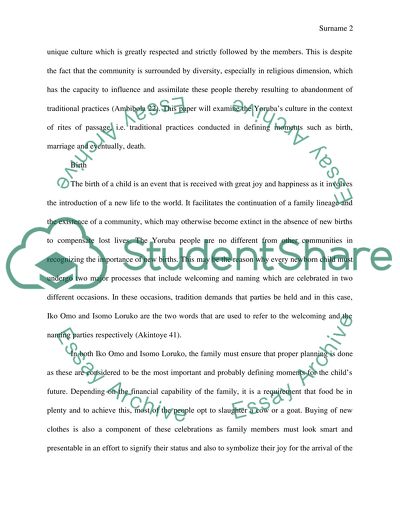Cite this document
(The Yoruba Rites of Passage Term Paper Example | Topics and Well Written Essays - 1750 words, n.d.)
The Yoruba Rites of Passage Term Paper Example | Topics and Well Written Essays - 1750 words. Retrieved from https://studentshare.org/culture/1448193-the-yoruba-rites-of-passage
The Yoruba Rites of Passage Term Paper Example | Topics and Well Written Essays - 1750 words. Retrieved from https://studentshare.org/culture/1448193-the-yoruba-rites-of-passage
(The Yoruba Rites of Passage Term Paper Example | Topics and Well Written Essays - 1750 Words)
The Yoruba Rites of Passage Term Paper Example | Topics and Well Written Essays - 1750 Words. https://studentshare.org/culture/1448193-the-yoruba-rites-of-passage.
The Yoruba Rites of Passage Term Paper Example | Topics and Well Written Essays - 1750 Words. https://studentshare.org/culture/1448193-the-yoruba-rites-of-passage.
“The Yoruba Rites of Passage Term Paper Example | Topics and Well Written Essays - 1750 Words”, n.d. https://studentshare.org/culture/1448193-the-yoruba-rites-of-passage.


